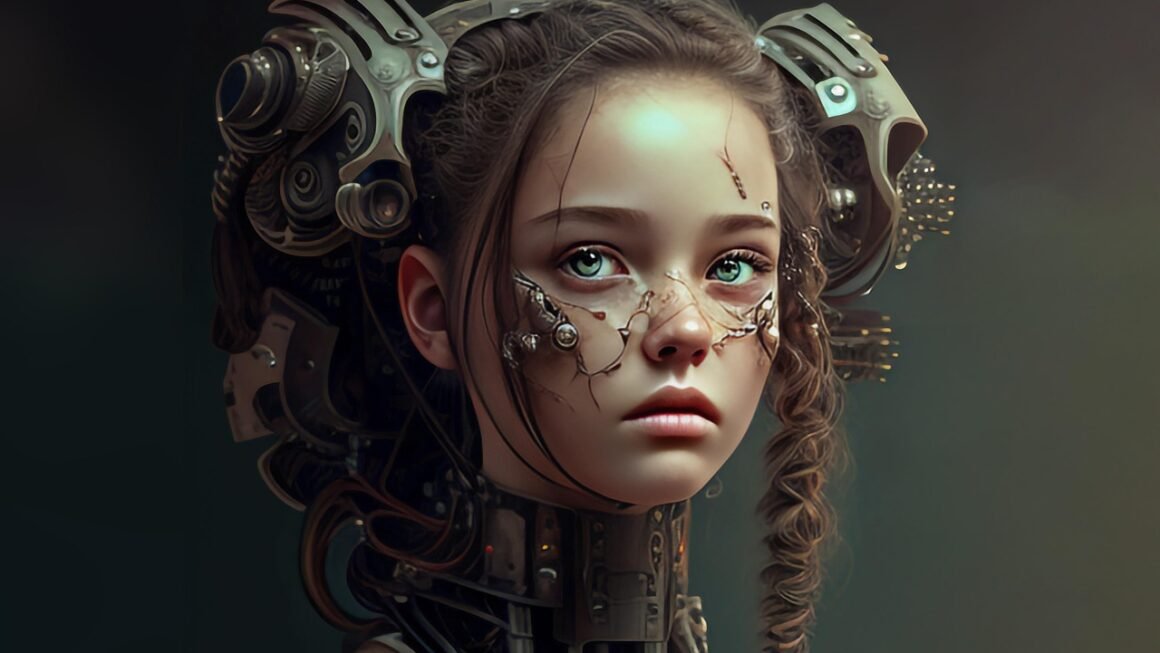The gaming industry is undergoing a radical transformation, fueled by the rapid advancement and integration of artificial intelligence (AI). From enhancing player experiences to streamlining game development processes, AI is no longer a futuristic concept, but a tangible reality shaping the present and future of gaming. This blog post delves into the multifaceted applications of AI in gaming, exploring its benefits, challenges, and exciting potential.
AI-Powered NPCs: A New Level of Realism
Intelligent Opponents and Allies
One of the most noticeable applications of AI in gaming is the creation of Non-Player Characters (NPCs) that exhibit more realistic and engaging behaviors. Traditional NPCs often follow pre-scripted routines, making them predictable and lacking in dynamism. AI-powered NPCs, on the other hand, can learn, adapt, and react to player actions in a more nuanced way.
- Dynamic Difficulty Adjustment: AI can analyze a player’s performance and adjust the difficulty level of NPCs accordingly, providing a consistently challenging and rewarding experience. This prevents the game from becoming either too easy or frustratingly difficult.
- Emergent Behavior: AI algorithms like reinforcement learning allow NPCs to develop unexpected behaviors based on their interactions with the game world and the player. This creates a sense of unpredictability and realism.
- Improved Teamwork: In team-based games, AI-controlled teammates can provide more effective support by understanding player strategies, coordinating attacks, and reacting intelligently to changing battlefield conditions.
- Example: In games like Horizon Zero Dawn, enemies utilize sophisticated AI to coordinate attacks, flank players, and exploit weaknesses, creating a challenging and engaging combat experience. Another example is The Last of Us, where the AI-controlled companions react realistically to the environment and provide meaningful assistance to the player.
Advanced Dialogue and Interactions
AI is also revolutionizing how players interact with NPCs through natural language processing (NLP) and machine learning.
- More Realistic Conversations: AI-driven dialogue systems can understand player input and generate responses that are contextually relevant and emotionally appropriate. This makes conversations feel more natural and less scripted.
- Personalized Storylines: AI can track player choices and preferences, tailoring the narrative and NPC interactions to create a more personalized and immersive experience.
- Voice Acting Enhancements: AI can be used to generate realistic voice acting, reducing the need for expensive voice actors and allowing for more flexible and dynamic dialogue.
- Example: Star Citizen is exploring the use of advanced AI to create NPCs with realistic personalities and backstories, making interactions feel more meaningful and impactful.
AI in Game Development: Streamlining the Creation Process
Automated Content Generation
AI is increasingly being used to automate various aspects of game development, from creating environments to designing levels. This can significantly reduce development time and costs, allowing developers to focus on more creative and strategic tasks.
- Procedural Terrain Generation: AI algorithms can generate vast and detailed landscapes based on a set of parameters, reducing the need for manual design.
- AI-Assisted Level Design: AI can analyze level layouts, identify potential problems, and suggest improvements, helping designers create more engaging and balanced gameplay experiences.
- Automatic Asset Creation: AI can generate textures, models, and animations based on a set of specifications, reducing the workload for artists.
- Example: No Man’s Sky famously uses procedural generation to create a virtually infinite universe of planets, each with unique environments and creatures. Dwarf Fortress also relies heavily on procedural generation to create incredibly detailed and complex worlds.
AI-Powered Testing and Quality Assurance
AI can play a crucial role in game testing and quality assurance by automating repetitive tasks and identifying potential bugs.
- Automated Playtesting: AI agents can play through the game repeatedly, exploring different scenarios and identifying potential issues.
- Bug Detection: AI can analyze game logs and identify patterns that indicate the presence of bugs.
- Performance Optimization: AI can identify areas of the game that are causing performance bottlenecks and suggest optimizations.
- Example: Many game studios are using AI-powered testing tools to automatically test their games on various platforms and configurations, ensuring that they run smoothly on a wide range of hardware.
Enhancing Player Experience Through AI
Personalized Gaming Experiences
AI enables developers to create gaming experiences tailored to individual player preferences and playstyles.
- Adaptive Tutorials: AI can analyze a player’s skill level and adjust the difficulty and content of tutorials accordingly.
- Dynamic Storytelling: As mentioned earlier, AI can adapt the narrative based on player choices and preferences, creating a more personalized and engaging storyline.
- Personalized Recommendations: AI can recommend games and content based on a player’s past playing habits and preferences.
- Example: Many modern games feature adaptive difficulty settings that adjust based on the player’s performance. Subscription services like Xbox Game Pass utilize AI to recommend titles based on user’s gaming history.
Improved Matchmaking and Competitive Balance
AI is also being used to improve matchmaking systems and ensure competitive balance in multiplayer games.
- Skill-Based Matchmaking: AI can accurately assess a player’s skill level and match them with opponents of similar skill, creating more fair and enjoyable matches.
- Anti-Cheat Detection: AI can analyze player behavior and identify potential cheaters.
- Balance Adjustments: AI can analyze gameplay data and suggest balance adjustments to ensure that all characters, weapons, and abilities are fair and competitive.
- Example: Games like Valorant and Apex Legends employ sophisticated anti-cheat systems that utilize AI to detect and ban cheaters. These systems analyze player behavior for anomalies and patterns indicative of cheating.
Challenges and Future Directions of AI in Gaming
Ethical Considerations
The increasing use of AI in gaming raises several ethical considerations that need to be addressed.
- Bias in AI Algorithms: AI algorithms can be biased based on the data they are trained on, potentially leading to unfair or discriminatory outcomes.
- Job Displacement: The automation of game development tasks through AI could lead to job displacement for some developers.
- Transparency and Explainability: It is important to ensure that AI systems are transparent and explainable, so that players and developers understand how they work and can identify potential problems.
The Future of AI-Driven Gaming
The future of AI in gaming is bright, with many exciting possibilities on the horizon.
- More Realistic and Engaging Virtual Worlds: AI will continue to be used to create more realistic and engaging virtual worlds that feel alive and responsive.
- Completely Personalized Gaming Experiences: AI will enable developers to create gaming experiences that are completely tailored to individual player preferences and playstyles.
- New Forms of Gameplay: AI could enable completely new forms of gameplay that are not possible with traditional game development techniques.
Conclusion
AI is revolutionizing the gaming industry, offering numerous benefits to both developers and players. From creating more realistic NPCs to automating game development tasks and enhancing player experiences, AI is transforming the way games are made and played. While ethical considerations need to be addressed, the future of AI in gaming is bright, with many exciting possibilities on the horizon. By embracing AI responsibly and thoughtfully, the gaming industry can unlock its full potential and create truly immersive and engaging experiences for players around the world.



